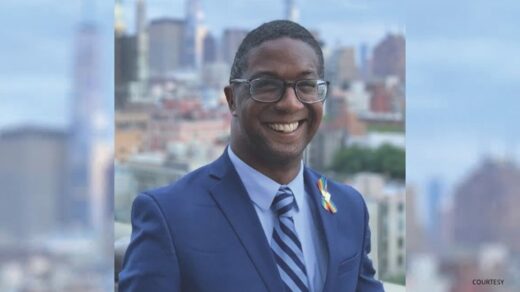What Happens in Georgia Will Affect Every LGBTQ+ American
This month Georgia’s on everyone’s mind. Voters in the Peach State came out in record numbers to cast their ballots for President-elect Joe Biden, and for the first time in nearly two decades the state has chosen a Democratic presidential candidate.
Now it’s vital that Georgians channel that grassroots energy into electoral action again. The run-off elections in January will determine what the U.S. Senate will prioritize for the next two years. And for the first time in a long time, there is a narrow pathway forward to passing LGBTQ-inclusive nondiscrimination protections at the federal level.
Right now, people in many states, including in Georgia, are left vulnerable to discrimination based on sexual orientation and gender identity in basic areas like housing and healthcare because of the absence of LGBTQ-inclusive state and federal nondiscrimination laws. While Georgia’s current Senators David Perdue and Kelly Loeffler have refused to sign onto this common sense legislation, we hope that whoever wins — Perdue, Loeffler, Jon Osoff, or Rev. Raphael Warnock — takes the time to listen to everyday Georgians who overwhelmingly support nondiscrimination legislation like the Equality Act, which would establish express and enduring nondiscrimination protections nationwide. No one in Georgia or nationwide should have to fear discrimination because of who they are or who they love.
The way that the Georgia electorate spoke out in this election tells us Georgians are ready for policies that ensure dignity and equality for all. It’s time for our laws to catch up with the rest of the country so we can evolve toward a more inclusive state where everyone is welcome.
The lack of protections in our state causes real and urgent damage: A recent study from the Center for American Progress shows that 1 in 3 LGBTQ Americans has faced discrimination in the past year, including 3 in 5 transgender people. Many of these folks have nowhere to turn when denied service, are evicted, or rejected from health care providers.
Thankfully, local leaders recognize this struggle and are stepping up: Twelve Georgia municipalities have passed local ordinances prohibiting anti-LGBTQ discrimination, including Savannah, Statesboro, and Macon-Bibb County just this year.
As important as these ordinances are, they’re not enough. When an LGBTQ person leaves an area with protections, they’re suddenly vulnerable to discrimination. A patchwork of protections just doesn’t work. That’s why we need to see LGBTQ-inclusive nondiscrimination at the state and, most importantly, at the federal level.
Georgia can do the right thing. We have examples of progress from this year alone to look to for inspiration. Organizers from Fair Fight and other groups triumphed with heroic voter mobilization efforts to preserve people’s power at the ballot box. When Ahmaud Arbery was murdered by white supremacists this year, state lawmakers quickly came together to establish inclusive laws to address hate crimes in Georgia. June’s landmark U.S. Supreme Court ruling on employment discrimination, Bostock v. Clayton County, was brought by a gay Georgian, Gerald Bostock.
These are important, hopeful developments. But they also illustrate the injustices of time — and the ways that progress can often take far too long.
I wish civil rights legend Congressman John Lewis were alive today to see how Georgians showed up to vote. I wish our state had done the work to reflect on the violence of anti-Black racism before Ahmaud was killed. I wish Gerald Bostock’s Supreme Court co-plaintiffs, Don Zarda and Aimee Stephens, could see how they’ve changed the country for LGBTQ people, but they died before their cases were decided.
On a personal level, I wish my beloved husband and partner of 32 years, Peter Stinner, could be standing with me in our life’s work toward equality and dignity for marginalized communities. Peter passed away on August 16, and my heart breaks for every step toward justice that he won’t witness.
We face so many urgent problems — and in these uncertain times, I know that many of them feel like overwhelming puzzles with missing pieces. But that’s not the case for combatting anti-LGBTQ discrimination. We have all of the pieces. We know what we need to do. We need to pass LGBTQ-inclusive nondiscrimination protections.
We don’t have time to waste. People are hurting right now.
If I’ve learned anything during this surreal year, it’s that for the little time we have on this Earth, we have to fight like hell for what’s right and keep pushing forward. It’s time for all of us to fight for a pro-equality Senate on January 5 — and then, to demand that Congress take action.
Jeff Graham is the Executive Director of Georgia Equality. He can be reached at jeff@georgiaequality.org.
Original Article on The Advocate
Author: Jeff Graham




